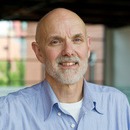Page 1 • (71 results in 0.029 seconds)
-

Professor Emeritus of Computer Science | Department of Computer Science | hausergj@plu.edu | 253-535-8731
George Hauser Professor Emeritus of Computer Science Phone: 253-535-8731 Email: hausergj@plu.edu Office Location:Morken Center for Learning & Technology Office Hours: Mon - Fri: By Appointment Professional Education Ph.D., University of Rochester, 1988 M.S., University of Oregon, 1980 B.S., Computer Science, Washington State University, 1972 B.S., Physics, Washington State University, 1971 Areas of Emphasis or Expertise Parallel Algorithms Computational Complexity Computer Communication
Office HoursMon - Fri: -Area of Emphasis/Expertise -
Why do we evaluate information In a world full of information that is steeped in algorithms, for-profit motivations, and biases, how do we determine the truth? And how do we know which information
Why do we evaluate information In a world full of information that is steeped in algorithms, for-profit motivations, and biases, how do we determine the truth? And how do we know which information to trust? These questions are becoming more and more difficult to answer as our information society becomes entrenched in forms of emotional manipulation and post-truth tactics. A glimmer of hope can be found in seeking to understand the information economy itself and how it functions. This section
-
Join the Computer Science Department to hear the senior capstone presentations. Student presentations will take place Friday and Saturday. All talks are scheduled in Morken 203.
through digitizing the analog input signals. These digital signals are then shaped by digital signal processing algorithms whose parameters are determined by user input. The whole process occurs on a 32-bit ARM microprocessor. The resultant signal is then converted back to analog to be used by an external system of the user’s choice. 3:30 Break 3:45pm – Swarm Engine: Parallel Programming Game Engine James DeBroeck (BSCE, BSCS) Swarm Engine is a C++ library used in game and simulation development, with
-
Computational science is interdisciplinary by nature, using algorithms, mathematics and computers to analyze and solve scientific and engineering problems. The DOE CSGF’s unique program of study helps nurture this crosscutting foundation. The result: scientists who may reside in science, mathematics, engineering or computer science departments…
Dept of Energy Computational Science Graduate Fellowship Posted by: nicolacs / October 30, 2024 October 30, 2024 Computational science is interdisciplinary by nature, using algorithms, mathematics and computers to analyze and solve scientific and engineering problems. The DOE CSGF’s unique program of study helps nurture this crosscutting foundation. The result: scientists who may reside in science, mathematics, engineering or computer science departments but share an interest in research using
-
Computational science is interdisciplinary by nature, using algorithms, mathematics and computers to analyze and solve scientific and engineering problems. The DOE CSGF’s unique program of study helps nurture this crosscutting foundation. The result: scientists who may reside in science, mathematics, engineering or computer science departments…
Dept of Energy Computational Science Graduate Fellowship Posted by: nicolacs / October 30, 2024 October 30, 2024 Computational science is interdisciplinary by nature, using algorithms, mathematics and computers to analyze and solve scientific and engineering problems. The DOE CSGF’s unique program of study helps nurture this crosscutting foundation. The result: scientists who may reside in science, mathematics, engineering or computer science departments but share an interest in research using
-
Computational science is interdisciplinary by nature, using algorithms, mathematics and computers to analyze and solve scientific and engineering problems. The DOE CSGF’s unique program of study helps nurture this crosscutting foundation. The result: scientists who may reside in science, mathematics, engineering or computer science departments…
Dept of Energy Computational Science Graduate Fellowship Posted by: nicolacs / October 30, 2024 October 30, 2024 Computational science is interdisciplinary by nature, using algorithms, mathematics and computers to analyze and solve scientific and engineering problems. The DOE CSGF’s unique program of study helps nurture this crosscutting foundation. The result: scientists who may reside in science, mathematics, engineering or computer science departments but share an interest in research using
-

Professor of Computer Science | Department of Computer Science | blahakd@plu.edu | 253-535-8702
Kenneth Blaha Professor of Computer Science he/him/his Phone: 253-535-8702 Email: blahakd@plu.edu Status:Phased Retirement Website: https://cs.plu.edu/~blahakd/ Professional Education Ph.D., University of Oregon, 1989 M.S., Computer Science, University of Oregon, 1984 M.S., Mathematics, University of Oregon, 1981 B.A., University of Minnesota, Morris, 1978 Areas of Emphasis or Expertise Computational Complexity Algebraic Algorithms Computer Science Education
-
Congratulations to the Overall Winners of the 2016 South Sound Regional Science & Engineering Fair!
Health: Early Detection, Monitoring, and Control of Parkinsonian Tremor 3rd Place: Nitya Krishna Kumar, Olympia HS and Veenadhari Kollipara, Interlake HS: Towards Next Generation Cancer Treatment Modality: In-vivo dosimetry studies of Boron Neutron Capture Therapy using protist models 4th Place: Abhinav Gundrala, Olympia HS: Efficiently Diagnosing Heart Arrhythmia Using Machine Learning Algorithms Please click on the links below for other award winners: 9-12 Category Awards 9-12 Specialty Awards 6-8
-
Major in Computer Science 28 semester hours in CSCI, plus 12 semester hours in mathematics CSCI 144, 270; 367 or 390; 499A, and 499B 12 additional hours selected from computer science courses
, biology). Ethical and social dilemmas posed by AI will be considered. Prerequisite: CSCI 270. (4) CSCI 340 : Formal Languages Study of formal models of computation (finite automata, pushdown automata, and Turing machines). Study of formal language concepts, such as regular expressions and grammars. There will be a significant programming component where students implement and test algorithms. Prerequisite: CSCI 270. (4) CSCI 343 : Programming Language Concepts A study of the fundamental concepts of
-
The Computer Science Department senior capstone presentations will take place Saturday, May 6th. If you’d like to join the capstone Zoom session, please email Assistant Professor Jeff Caley at
Javascript and Python. 10:30am – Break 11:00am – LaserDrive Erick Arcos (BA), Christian Galang (BS), Ben Poplin (BA) LaserDrive is an autonomous RC car racing project, with the primary goal of having two autonomous RC cars capable of racing one another in a map. To do so, a second RC car was custom built to have a LiDAR sensor mounted alongside a Jetson TX2, power board, and a Vedder Electronic Speed Controller (VESC). To safely enable autonomous functions on the cars, algorithms were implemented in
Do you have any feedback for us? If so, feel free to use our Feedback Form.


